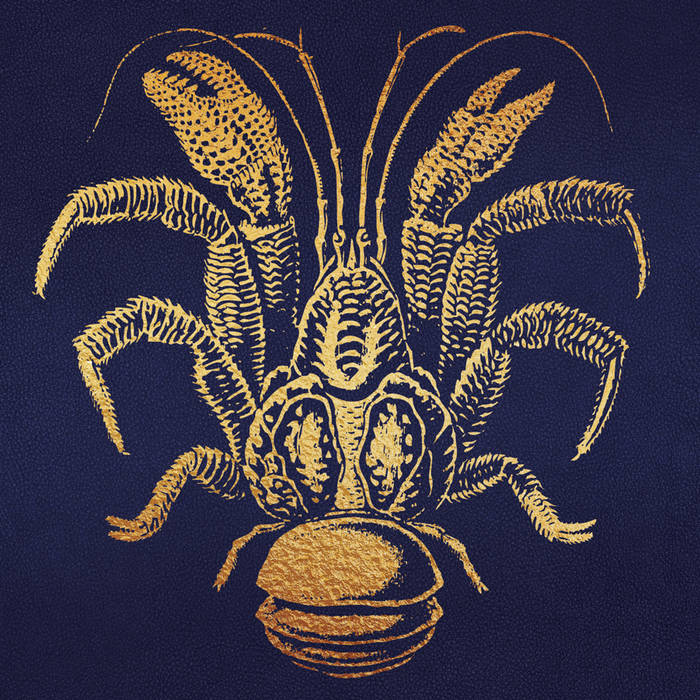Whatever one might think of their idiosyncratic blend of dramatic rock and earworm inducing pop tunes, it’s hard not to admire the enduring tenacity of Huddersfield’s Scaramanga Six. Running their own label, Wrath Records, doing their own PR and presumably working day jobs in order to keep the whole thing afloat can’t be an easy feat to maintain over two decades. There are certain rewards, however, that come with doing a thing purely for its own sake, apart from the vicissitudes of fashion and the whims and expectations of critics and fans alike, such as the time to develop both craft and identity, source those fancy Nashville shirts, soothsayer’s turbans and get that shade of pimento red hair dye just right – as per accompanying band photo.
A little goodwill from the fans, on the other hand, is nothing to be sniffed at. Funded in the first 16 hours of a PledgeMusic crowd-funding campaign, The Terrifying Dream is their finest work to date, described by the band themselves, with only slightly self-deprecating humour, as their ‘Magnum Hopeless’. Whilst 2013’s, Steve Albini produced, Phantom Head reined in some of the band’s tendencies towards ambitious orchestrations in favour of a more direct and brutal sound, The Terrifying Dream sees the return of Alan Smyth, who produced their 2011 album Cursed. Although it’s surely beyond argument that within certain parameters, Albini is one of the best engineers in the world, his minimal overdub approach felt restrictive rather than liberating in the case of the Scaramanga Six. The tongue-in-cheek suggested listening ‘instructions’ to The Terrifying Dream – ‘For best results please write your own screenplay and shoot a high-budget film to accompany this album’ – go a fair way towards explaining the cinematic, almost visual allure its songs command.
With the application of a little imagination, each of the 11 tracks becomes a self-contained psychodrama, the best of which are like nightmares fated to recur for at least as long as it takes to shake loose from the grip of their relentless melodies. ‘Rules’ lures the listener with an opening drumbeat that suddenly becomes chorus without warning; as though you’ve followed the beat down a corridor, opened a door and found the band in full flight, sense of immersion accomplished in a single devious stroke. ‘The Man Who Couldn’t Sing’ articulates a vocalist’s fear of words deserting them in front of a crowded audience, to the kind of theatrically stirring, string-assisted bombast that wouldn’t be out of place as a Bond theme. ‘Out of My Tiny Mind’ is 80% infectious chorus, a soulful mantric-like repetition of declarations of devotion driven by insistent beats and a gorgeous fuzz tone guitar sound. It’s a perfect example of what the band do best, instantly memorable riffs with many-layered lush vocals and a lot of heart. ‘The Outsider’ sees guitarist Julia Arnez taking over vocals and the band shifting to a more introspective, 70s progressive vibe with sustained guitar notes and atmospheric keyboard swirls. ‘Citadel,’ the longest track on the album at eight-and-a-half minutes, combines Ennio Morricone soundtrack style whistling, thunderous Bill Ward like drumming with eerie, sparse piano which looms hazardously close to the Twilight Zone theme, followed by a zooming buildup reminiscent of Survivor’s ‘Eye Of The Tiger’, before launching into a guitar riff worthy of Rush’s Alex Lifeson.
The Scaramanga Six have always been musical magpies, playfully dropping quotes here and there, but their music is kept from becoming a cold exercise in postmodern appropriation by the level of ambition and enthusiasm they approach it with. Whereas with most Scaramanga Six albums, the opening half is so strong that it tends to overshadow the second, here two of the best songs are saved until almost last. ‘Tempest’ and ‘Blood On My Hands’ form and equally penumbral pair of theme tunes that would be perfect if attached to a TV show involving either murder or the supernatural, preferably both. ‘Tempest’ is the most beat driven track on the album, with a simply massive chorus that sounds as though it’s reverberating inside a cathedral, whilst ‘Blood On My Hands’ is almost like a Faith No More track with additional epic chorus design by Cardiacs or Levitation. Falling finally upon the heels of those two, closing track ‘Be Nothing’ acts as a soothing balm, a comedown lullaby with an accepting, yet nihilistic streak at its crooning heart: "We’re just particles, nothing more, nothing less." The Scaramanga Six make music to make mind movies to, and long may they continue.
<div class="fb-comments" data-href="http://thequietus.com/articles/19091-the-scaramanga-six-the-terrifying-dream-review” data-width="550">


